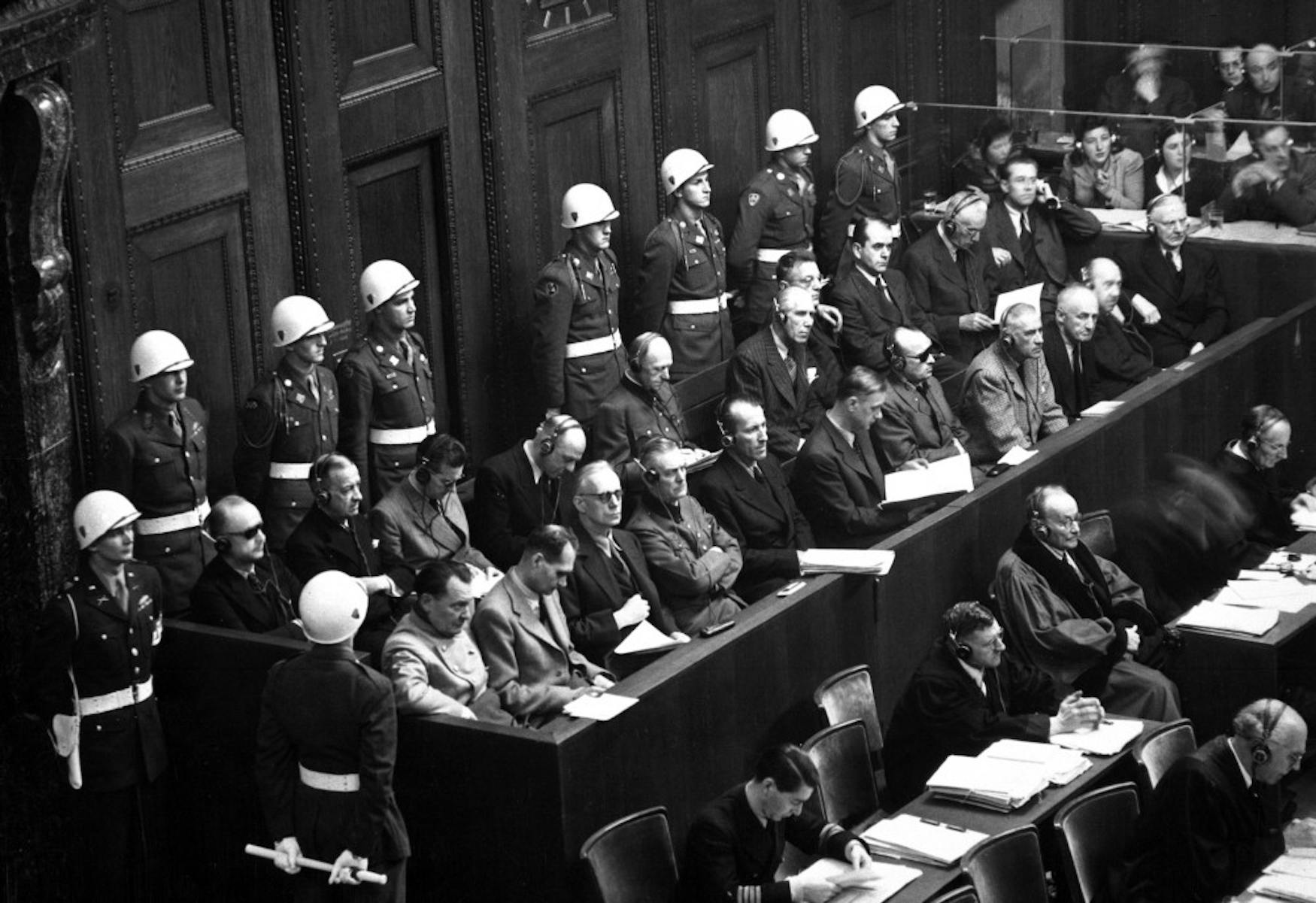“Never Again”
The fight to forge a convention for crimes against humanity
Would world leaders be less likely to commit crimes against humanity, war crimes or genocide if they believed they could be prosecuted by an international court? The premise of a new 40-minute documentary called “Never Again: Forging A Convention For Crimes Against Humanity” is based on the idea that the creation of such a court could do just that.
On Oct. 4, the International Center for Ethics, Justice and Public Life hosted a screening of the documentary in the Abraham Shapiro Academic Complex. Crowded around a few small tables facing a projector, a group of roughly 10 students attended, many of them politics majors interested in criminal justice. The film began by telling the stories of victims of human rights violations in countries such as Chad and North Korea. In a series of on-camera interviews, the (mostly women) survivors told their gut-wrenching stories of rape, kidnapping and torture. Each story ended the same: Instead of being punished for their crimes, the perpetrators always walked free.
As Fatou Bensouda, the International Criminal Court’s chief criminal prosecutor explains midway through the film, “Less than 1 percent of crimes against humanity are brought to justice.” Unlike war crimes or genocide, crimes against humanity can be carried out during times of relative peace. Such crimes include slavery, torture and apartheid. One explanation the film offers for this devastating failure to prosecute crimes of this nature is the lack of jurisdiction that international courts (such as the ICC) hold. Another issue is that while such courts can prosecute war crimes and genocide, they cannot investigate crimes against humanity due to a difference in legal definition between the two types of crimes.
Fortunately, there are examples of international courts holding leaders accountable for war crimes that can be used as models going forward. The film points to the impact of the 1945 Nuremberg Trials before the International Military Tribunal, which prosecuted leaders of the Third Reich for war crimes committed during the Holocaust. While the Nuremberg Trials resulted in the later formation of the ICC and set a precedent for prosecuting war crimes, the film explained that progress since then has been slow.
Since 1945, over 90 million people have been killed in genocides, and millions of others forcibly removed from their homes. The film showed Auschwitz through photos of Jews being led to gas chambers. The voice of Ben Fairer, a holocaust survivor who is dissatisfied that international justice is not yet universal, spoke as more images flashed across the screen. Fairer proclaimed, “I hope nobody ever has too see the horrors I have. The things I’ve seen, no human should witness.”
How can lawmakers take actions to ensure that Fairer’s wishes become a reality? In 2008, a group of seven professors who are experts in criminal law at the Washington University in St. Louis Law School founded a steering committee and partnered with the Whitney Harris Institute of Law with the goal of drafting a convention for crimes against humanity. Spearheaded by Professor Leila Sadat, a renowned human rights expert, the team drafted a treaty on the punishment and prevention of crimes against humanity, which, according to the University website, “is now available in seven languages and is currently being debated by the U.N. International Law Commission and governments around the world.”
While the film ended optimistically, it warned that such a convention is only meaningful if it receives support from the international community. Sadat hopes to see the convention submitted to the U.N. General Assembly by 2020, although she acknowledges that getting it passed would be a long shot.
After the film, the students discussed how the story had impacted their view of international criminal justice. The conversation turned toward the civil war raging on in Syria as well as the resurgence of the Taliban in Afghanistan. While many students expressed concern and dismay regarding the daunting task ahead, the efforts of Sadat and her team were encouraging to them. Ultimately, the convention will be an experiment to test the powers of an international agreement to forcibly hold world leaders accountable. Regardless of the outcome, the question the film raises is a crucial one: Can international justice ever be universal?



Please note All comments are eligible for publication in The Justice.